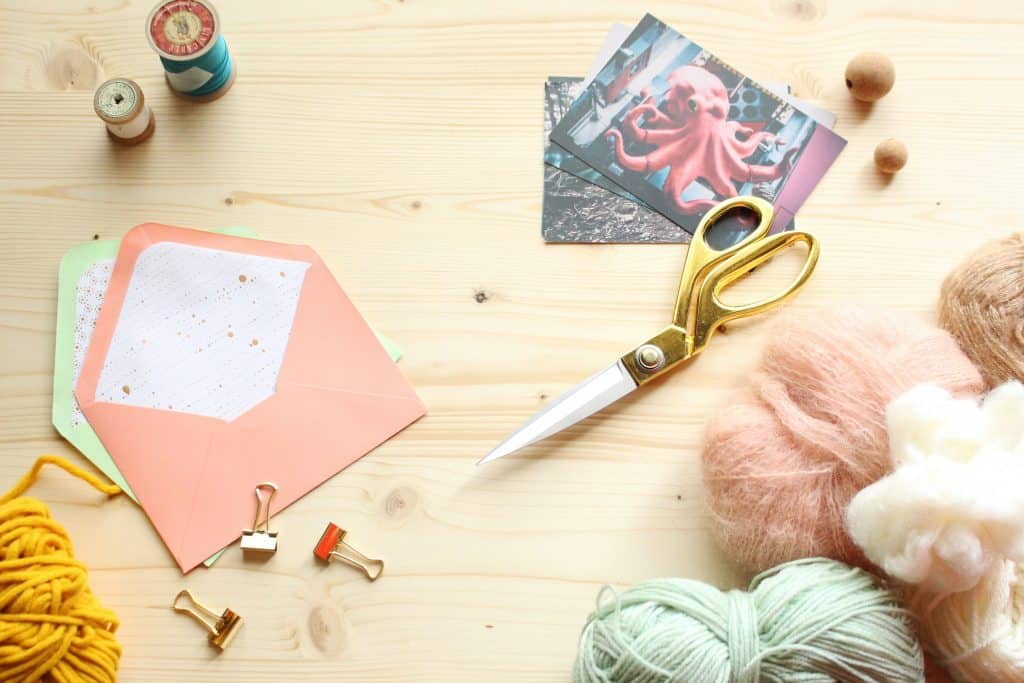Over 25% of Americans say that arts and crafts are a hobby or interest. These activities allow us to work with our hands, jog our brains, and create unique pieces that we’re proud of.
It’s enough for some of us to see the results of our hard work. But what if you could take it a step further and profit off of your talent? Then not only can you keep indulging yourself, but you can also make some cash.
There are certain steps you need to take though. So read on to find out how to start a craft business from your home.
Research the Market First
If you only have one hobby, then it should be easy to determine what you want to focus your business on. However, if you have more than one area of interest, it can be tough to narrow things down.
Regardless, it’s always good to research the market first, no matter what industry you’re in. You might have a really great idea, but it may turn out that many people have already beaten you to it. Trying to get into an already oversaturated market can be challenging, so you need to have some unique offering that’ll make you stand out if you decide to pursue things.
After deciding which type of art or craft to do, you should also pinpoint your style. For example, while the crochet market might be saturated, but you can hone your efforts on a niche subject, such as stuffed plants or video game characters.
What’s important is that you choose a niche that isn’t super specific, yet isn’t overly popular either. If you do decide to take on the latter challenge, then make sure you’ll be at the top of the industry with top-quality products and competitive prices.
Develop Your Business Plan
You’re already good at what you do, but that’s only part of the equation. While you can technically do arts and crafts whenever you wish, then sell these products (either online or offline), you won’t have a very clear picture of what the future of your business looks like. And if you plan on making a living off it, or a decent income at least, this won’t suffice.
Before you get started, you’ll need to lay out what your business goals are, as well as your pricing, target market, and marketing strategies. There are templates and guides that can help you write your business plan so you have a clear picture of what you’re aiming for.
Decide What Kind of Business You’re Running
This may not be a fun detail, but it’s important to choose the right business structure for your homemade crafts business.
If it’s just yourself, then you can set the business up as a sole proprietorship. But there are some benefits (and drawbacks) to selecting a limited liability company (LLC) as well. For example, if you run into financial problems, the company’s debts and assets are separate from your personal ones.
As you can imagine, there are little details that can make one business structure more advantageous for you than another. So it may be worth speaking to a professional before you make a decision.
Get Your Business License
After deciding which type of business structure you want, you’ll need to apply for the correct business licenses if applicable.
In many cases, you’re required by law to register with the local government. So check with both your city and state clerk to see which forms you need to fill out and send in.
Decide if You Want to Sell Online or Offline
If you start a craft business from home, chances are, you want to sell your products online. Otherwise, you lose your privacy if clients come to your home to browse and buy. Although you can participate in local craft fairs, so keep that in mind.
When selling online, you can either set up your own website or use an already-established platform. You won’t have to pay fees or have your profits cut by commissions if you DIY your site. However, it’ll be a lot more work, and most likely more expensive too, as you’ll have to hire people to design and implement the site.
To make it easier on yourself, and to focus more on doing what you love, it’s recommended that you use a platform like Etsy. That way, there’s less work you need to handle besides creating your pieces of art.
Open a Business Bank Account
You don’t always have to open a business bank account that’s separate from your personal one; it’ll depend on what business structure you have. If your company is a separate legal entity, then you’re legally required to open one.
It’s still wise to get a business bank account regardless of your situation. It’ll be much easier to keep your business and personal transactions separate, especially when tax season arrives.

Market Your Business
You need to show off your rafts to make and sell if you want to make any money. If no one knows of your brand and cool offerings, then you’ll have unmoved merchandise sitting and collecting dust.
Take clear pictures of your products, then get the word out through social media posts. You can also buy display ads and even get a press release in your local paper so the community learns of a brand they can be proud of and support.
Know How to Start a Craft Business
Knowing how to start a craft business can make all the difference between your company taking off or failing. Yes, being a good artist plays a crucial part, but knowing the market, pricing your merchandise correctly, choosing a suitable business structure, and doing effective marketing are all key pieces of the puzzle you need to figure out too.
Hopefully, this article has given you a good starting point. And as a result, you’ll bring joy to others with your crafts while profiting too.
Do you need help starting a craft business? Then sign up for Business Anywhere now. We have simple pricing with no hidden fees or add-ons!






